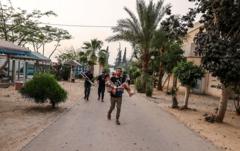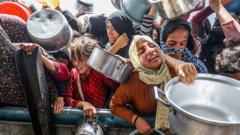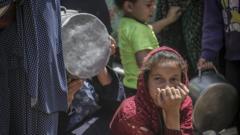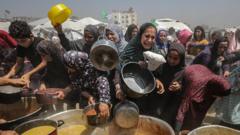As Israel continues its blockade on Gaza, internal defense reports suggest that starvation looms for many Palestinians unless aid deliveries resume urgently. This situation coincides with escalating military operations in the region.
Urgent Warnings from Israeli Officials Point to Imminent Starvation in Gaza

Urgent Warnings from Israeli Officials Point to Imminent Starvation in Gaza
Israeli military insiders reveal that Gaza is on the brink of severe famine, despite government denial and sustained aid blockades.
Some Israeli military officials have raised alarms behind closed doors about the deteriorating humanitarian situation in Gaza, indicating that without the resumption of aid deliveries within weeks, widespread starvation is imminent. Despite the Israeli government downplaying concerns associated with its blockade, international organizations have long sounded the alarm over looming famine conditions.
Three defense officials, speaking confidentially, revealed that military assessments have reported that essential food supplies are critically low and may soon fail to meet even basic nutritional requirements for the populace. Military officers in charge of humanitarian assessments have underscored the necessity for immediate action to facilitate renewed aid deliveries, highlighting the potentially devastating consequences of a failure to act swiftly.
This internal acknowledgment reflects a stark contrast to the Israeli government's public position that the blockade does not significantly endanger civilian lives in Gaza. Prime Minister Benjamin Netanyahu, amidst growing tensions, recently declared that military efforts would intensify in the ongoing conflict aimed at eradicating Hamas—a goal purportedly unresolved despite over 19 months of warfare.
As Netanyahu's administration plans to escalate military actions, the humanitarian crisis intensifies. Concurrently, President Trump's recent diplomatic endeavors in Saudi Arabia signal shifting dynamics in foreign relations, adding to the complexities of addressing both security and humanitarian concerns in the region.





















